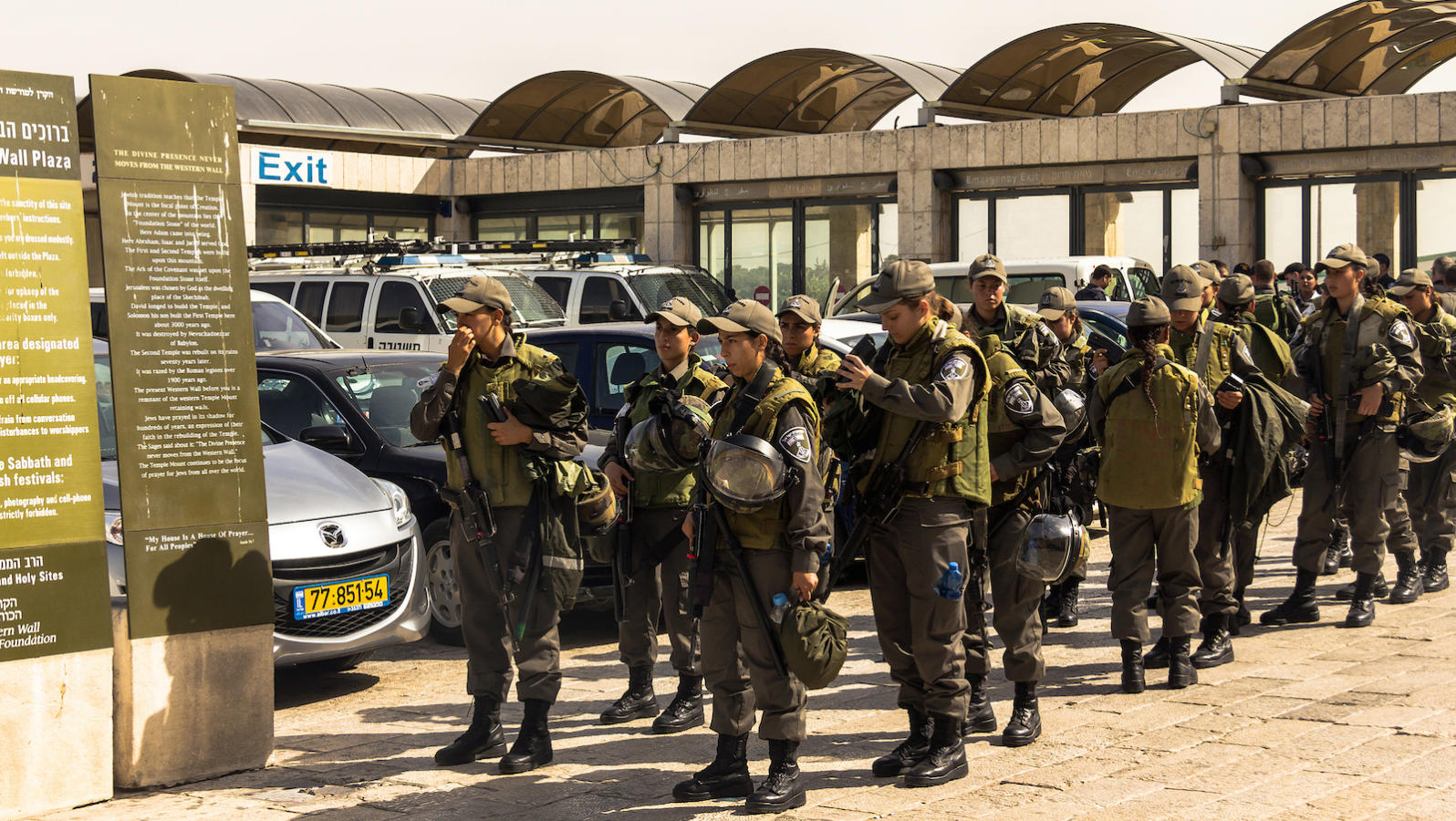Commentary on Parashat Shoftim, Deuteronomy 16:18-21:9
Judges and the judiciary system, the king, the kohanim (priests), and the prophet — each contributes to the nation, each interacts with the other, so that the Children of Israel can function as the nation of the Torah.
When the Children of Israel goes to war, all segments of the realm are involved, both on the military and the spiritual level. Before the battle, the kohen (priest) who has been anointed for war (mashuach milchamah) addresses the troops:
(1) When you go out to battle against your enemy and see horses and chariots, a people more numerous than you, do not be afraid of them, for Hashem, your G-d is with you, Who brought you up from the land of Egypt. (2) And it shall be, when you come near unto (k’karov’chem el) the battle, that the priest shall approach and speak to the people. (3) And he shall say to them: “Hear, O Israel, you are coming near to (kreivim . . . l’) the battle today against your enemies, let not your hearts falter, fear not, do not panic nor become terrified before them. (4) For HaShem, your G-d, is He Who goes with you, to fight for you against your enemies, to save you” (Deuteronomy 20:1-4).
In the verses that follow (5-8), the mashuach milchamah instructs those who had “unfinished business” back home which might distract them from fighting whole-heartedly to return and provide service from behind the fighting lines.
Thus, one who had either: acquired a new house but had not yet occupied it; acquired a vineyard but had not yet eaten of its produce; betrothed a wife but had not yet married her; or one who was, despite the mashuach milchamah‘s words of motivation, fearful and fainthearted, would bring supplies, water and food, and repair the roads.
With your help, My Jewish Learning can provide endless opportunities for learning, connection and discovery.
The Sifrei (legal midrash on Numbers and Deuteronomy from the tannaitic period) and the Talmud (Sotah 42a-b) insist that the mashuach milchamah addressed the troops twice. The source for this law is the repetition of the word k-r-v, “coming near,” in verses 2 and 3: since the text refers to “coming near” twice, it connotes that the mashuach milchamah spoke to them twice, once at the border before leaving the land of Israel, and once before preparing for battle.
According to Rashi‘s reading of the Talmud and the Sifrei, the command delineated in verses 5-8 (house-builders, etc.) was uttered at the border, while verses 3-4 were said immediately before the battle.
Rabbi Shimshon Raphael Hirsch, (1808-1888), explains this change in the order of the verses as follows: In verse 1, Moshe reminds the people, in a general sense, that HaShem will always protect them, just as He did in Egypt, so they must not fear in time of war; and therefore, before each battle, the mashuach milchamah will reassure them (verses 3-4). However, this reassurance will be preceded by the command to the house-builders and the others to return home (verses 5-8). Hirsch adds:
When the leaders of the Jewish State decide they have to go to war they must be conscious beforehand of the support of G-d in taking that serious step, and not make the main issue the size of their army . . .
The Rambam understands the Talmud differently because, as the Ohr Sameach (R. Meir Simcha of Dvinsk 1843-1926) writes, Rambam relies not on the Sifrei, but on the Tosefta Sotah 7:10 (tannaitic material). According to the Rambam’s reading and ruling (Laws of Kings and Their Wars, 7:2), the mashuach milchamah repeats the same address (verses 3-8) on both occasions, once at the border and once before the battle.
Rabbi Zvi Magence (1914-1989), in Magen Zvi, Sefer Kedushat Ha’aretz, reminds us that the primary reason for turning these people back is so that their own fear of dying will not affect the others. Therefore, he suggests, since some people did not feel afraid when they first left Israel but then realize they are when they approach the battle, they are given a second opportunity to return.
But, the fundamental question remains: On what basis do all our sources insist that the mashuach milchamah addresses the troops twice? The repeating of the verb k-r-v alone is insufficient an explanation, since verse 2 is an introduction and verses 3 and 4 are a quote, so the verb is mentioned in two different, and thus justifiable, ways.
Malbim (Meir Leib ben Yechiel Michael, 1809-1877) proposes a novel solution to the problem. He notes that there is a difference between when the verb k-r-v (come near) is used with the preposition word el or the prefix preposition l’. Although both mean “to,” they are not used in the same way:
K-r-v el is used with nouns, for example, “and all those who come near to the table of King Solomon” (I Kings 5:7);
K-r-v l’ is used with verbs, for example, “and then shall he come near to do it” (Exodus 12:48).
In our passage, however, we have both prepositions. In verse 2, which reads:
When you come near unto (k’karov’chem el) the battle, Malbim understands “battle” as a noun, meaning the place of battle. Consequently, this refers to the address made to the troops when they are about to leave the land of Israel, crossing the border to enter the place where the war will occur. On the other hand, in verse 3 where the mashuach milchamah says:
Hear, O Israel, you are coming near to (kreivim . . . l’) the battle,
Malbim understands “battle” in a verbal sense, meaning to wage war. Thus, this is a second address delivered as the troops are about to enter the battle.
War from a distance looks very different from war when it is near at hand.
Provided by the Orthodox Union, the central coordinating agency for North American Orthodox congregations.
Talmud
Pronounced: TALL-mud, Origin: Hebrew, the set of teachings and commentaries on the Torah that form the basis for Jewish law. Comprised of the Mishnah and the Gemara, it contains the opinions of thousands of rabbis from different periods in Jewish history.
HaShem
Pronounced: hah-SHEMM, Origin: Hebrew, literally, "the name," word used to refer to God.



